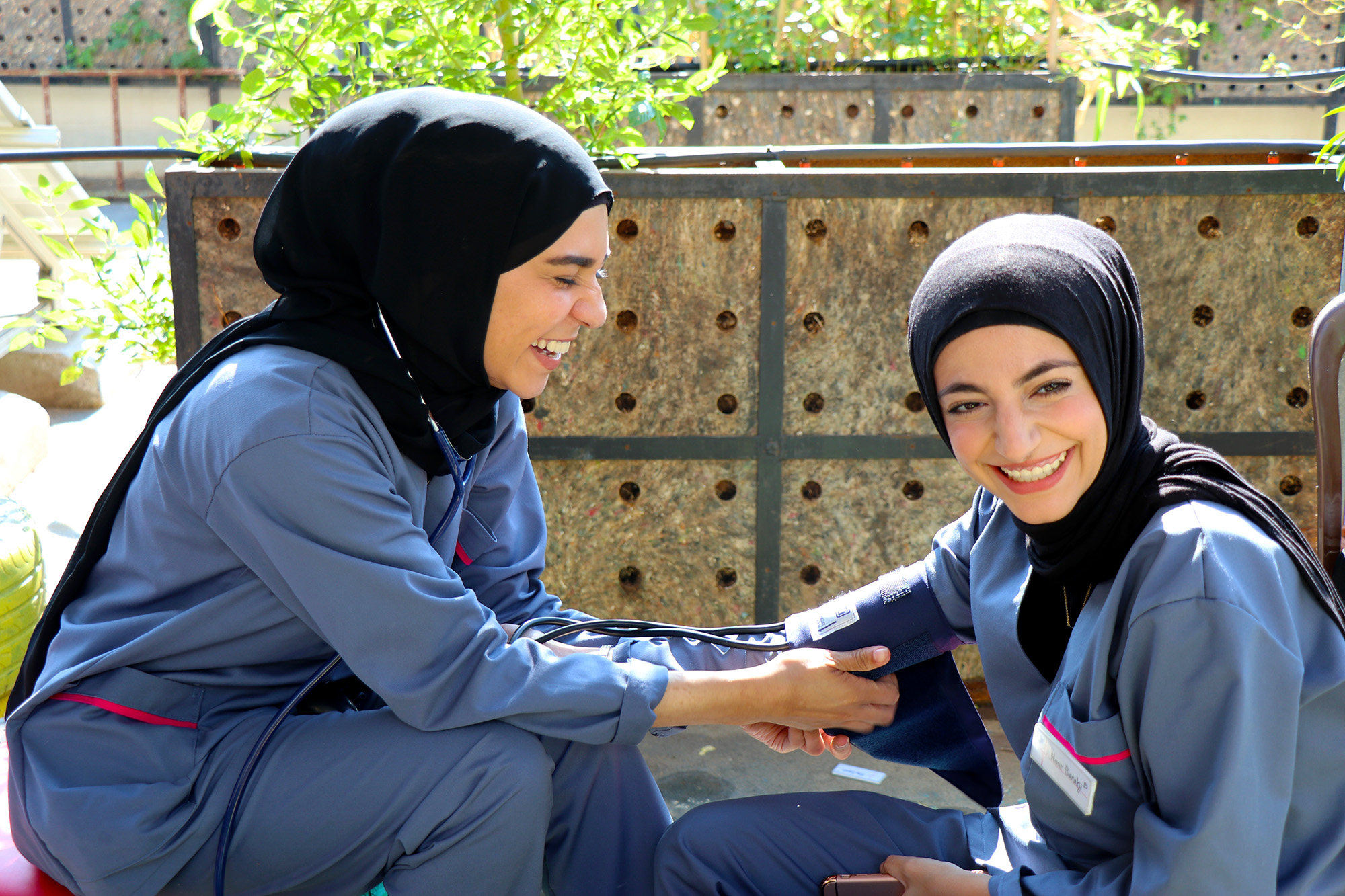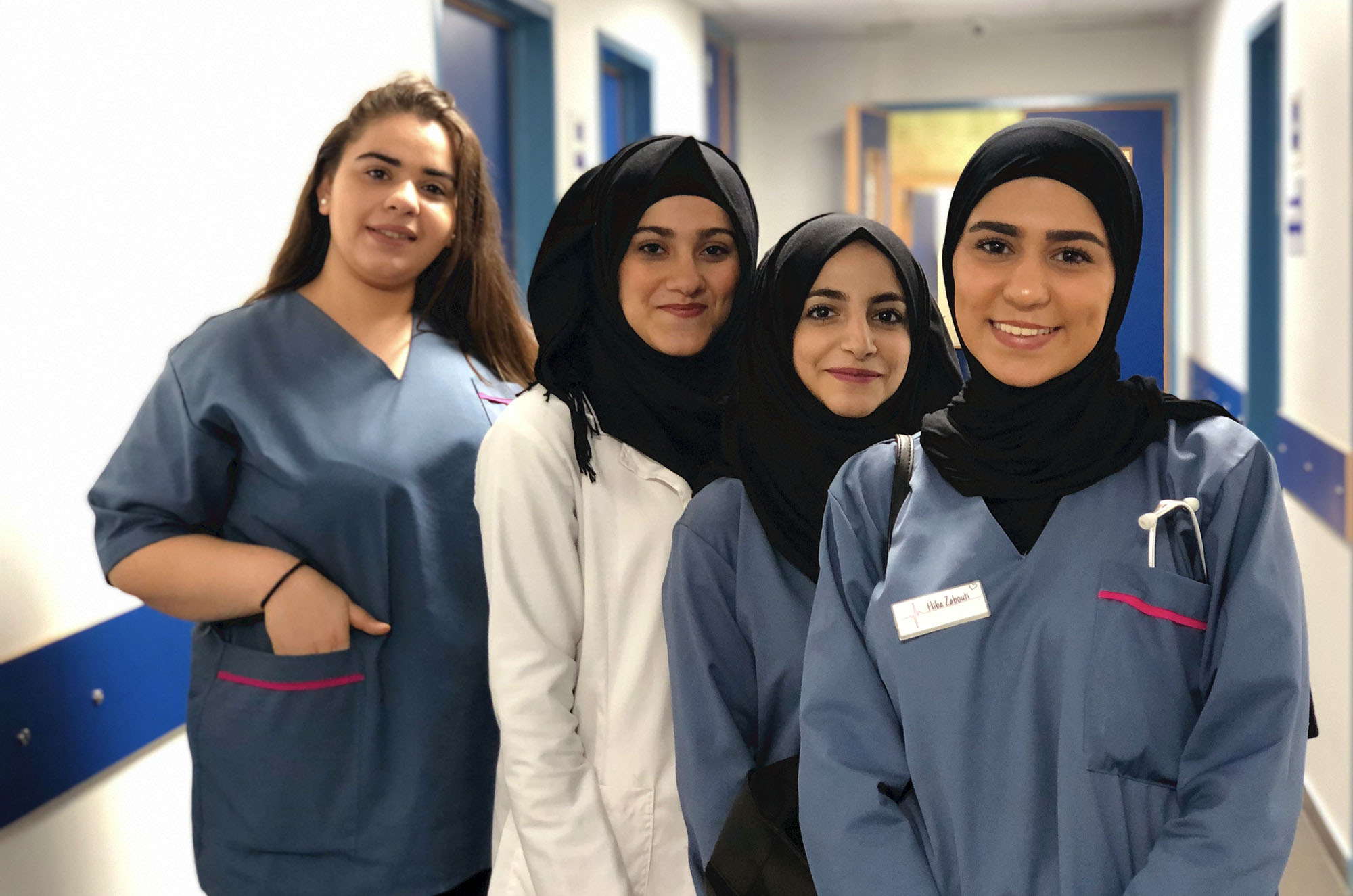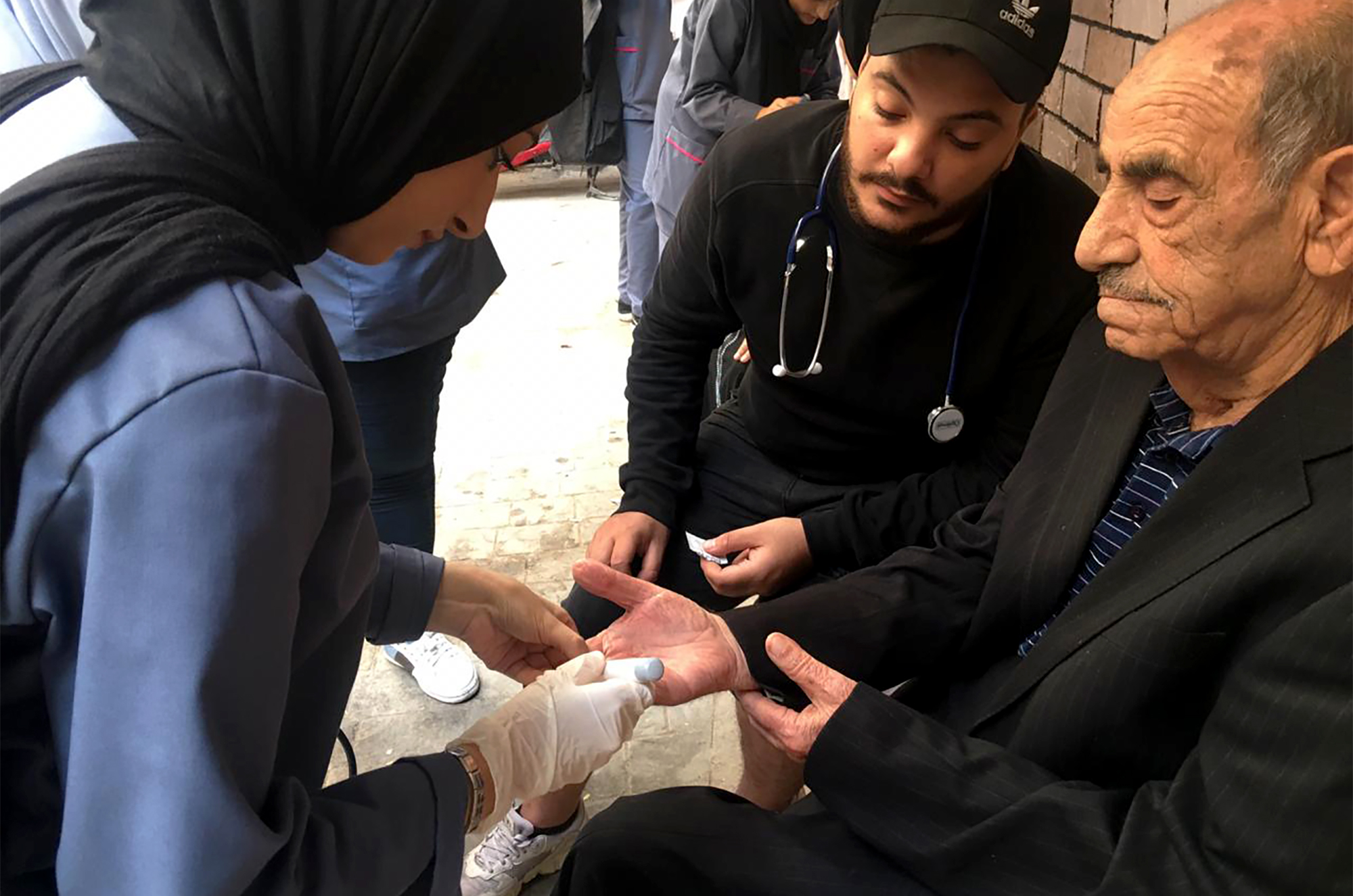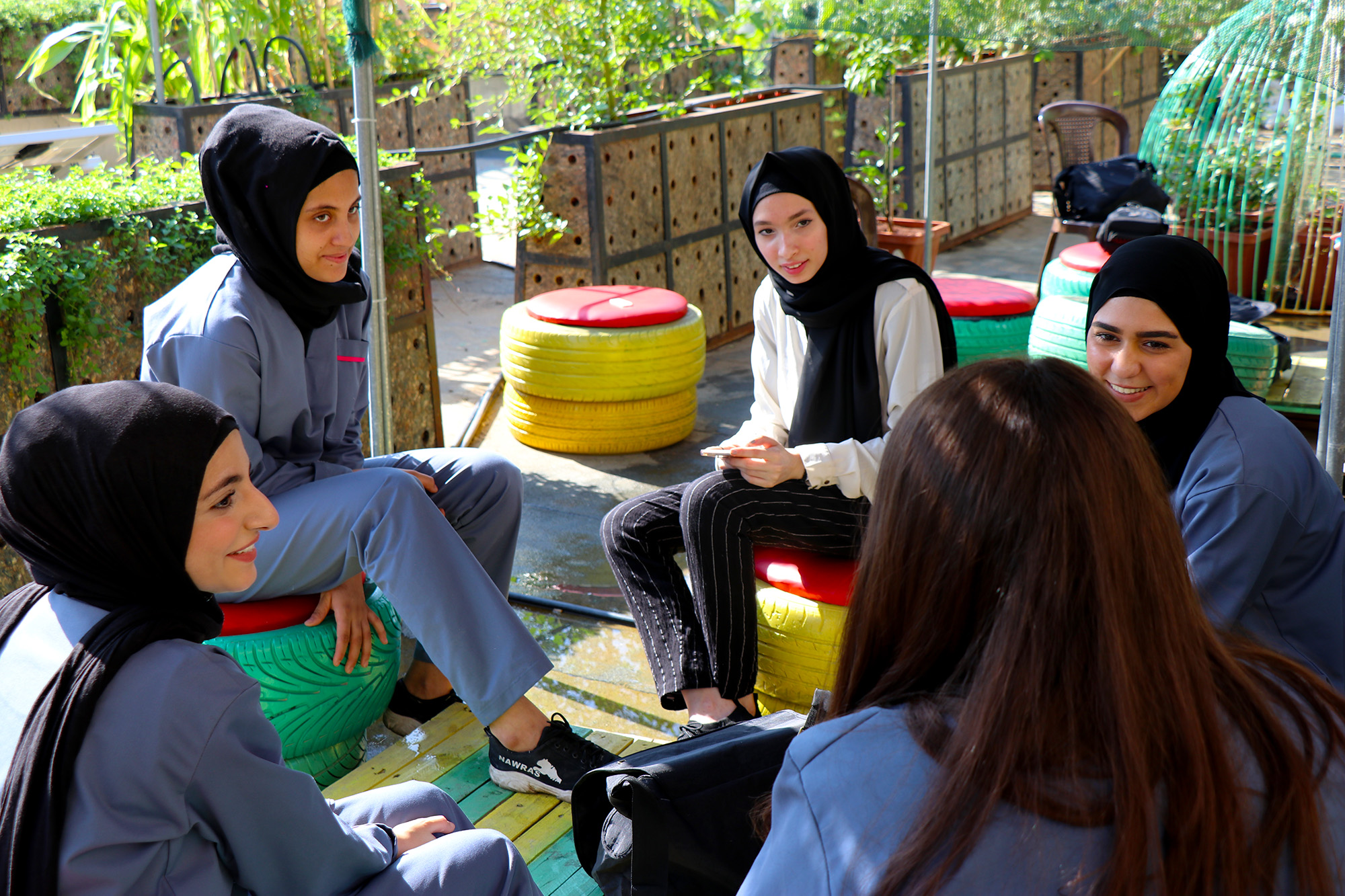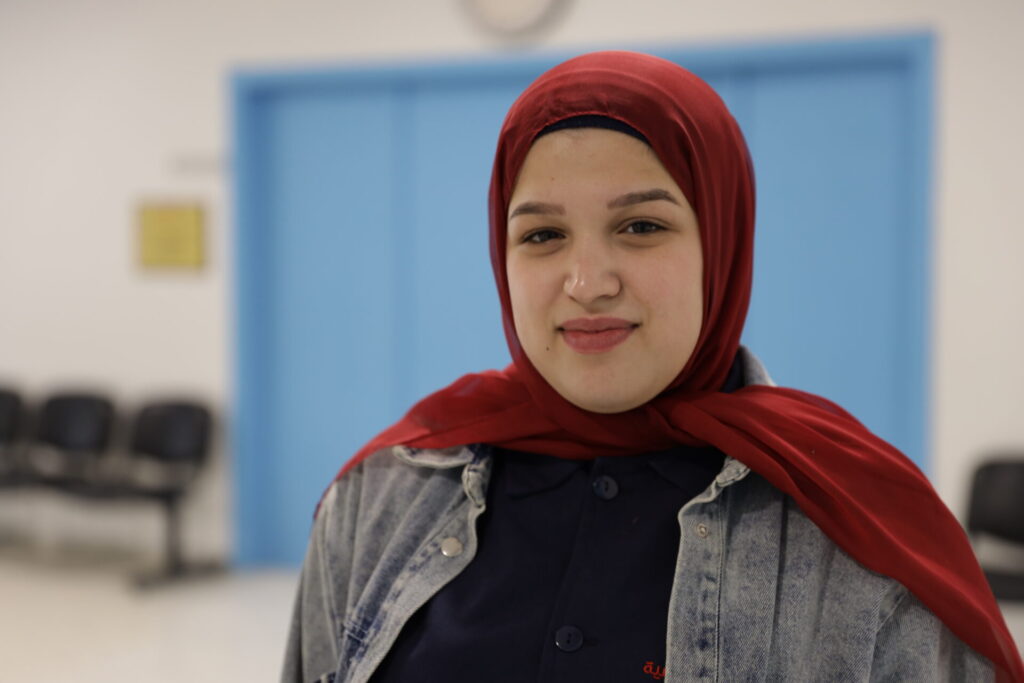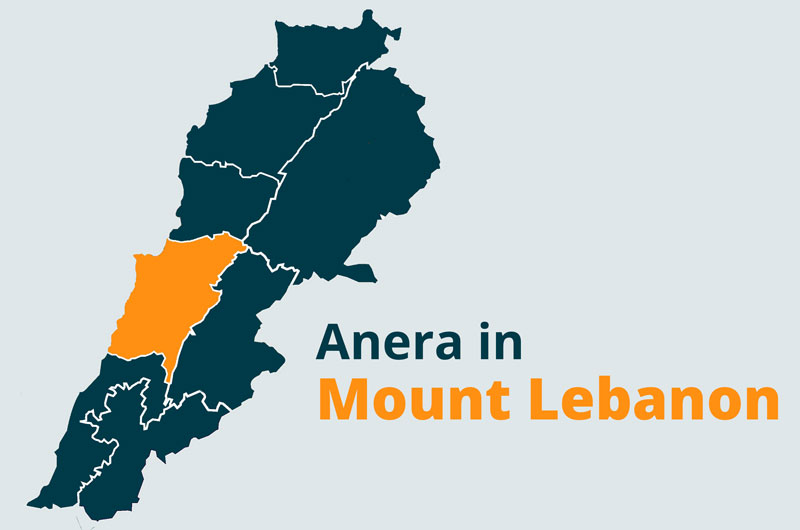HEALTH
Serving Refugee Seniors in Lebanon With a Mobile Health Care Unit
Dec, 2019
In Burj El Barajneh Palestinian Refugee Camp in Lebanon students bring health care services to seniors.
Recent graduates of Anera’s introductory nursing course had a choice to make. Where should they do their on-the-job training?
The students live in Burj El Barajneh Palestinian Refugee Camp in Beirut, Lebanon. As a group, the students discussed how best to gain experience and serve the community. Several suggested that they visit with the camp's elderly. There are many aging seniors in the camp unable to leave their homes for routine health checkups.
Hiba, a 20-year-old Palestinian graduate, explains what led them to the idea.
“We thought of our own grandparents. They have such a hard time walking all the way to Haifa Hospital [in the camp] to get their blood pressure checked. We thought of how unsafe the roads are, especially during the winter. And how much comfort we would be giving these people if we go to their homes instead.”
And so the mobile senior health care unit was born. Nour, a 21-year-old Palestinian, says,
“People love to see us arriving to their homes. We have our tools, we have the skills and we are ready to serve. Our elderly neighbors are so glad, they asked us to never stop visiting them! We are also keeping them company, making them smile — that's also important for their health.”
Their service experiences are teaching them how to commit to a job and manage their finances. The paid work experience is also very helpful in finding other paid jobs in the future.
Introducing Youth in Burj El Barajneh Refugee Camp to Nursing
The students are graduates of Anera's course in nursing and primary health care. Anera partners with the Women’s Program Association to offer the course. The young graduates completed their theoretical and practical training in Haifa Hospital. The hospital is a central public health facility recently renovated by Anera. It serves thousands of refugee families in and around Burj El Barajneh.
Inas, a 17-year-old Palestinian, is one of the intro to nursing graduates. She says of the course,
“We learned the basics: how to test someone’s blood pressure and glucose levels and how to perform first aid. Enough to be able to assist our families and neighbors.”
Another graduate, Mariam, says the program has been transformative for her.
“I had some self-confidence issues. I used to get shy. And I wasn't comfortable around needles. But the course and my training at the hospital changed me. I had to toughen up. I like the new me! I am definitely pursuing nursing as a career.”
At the graduation ceremony, students received course-graduate kits. The kits include a basic set of medical supplies - items like a thermometer, a blood pressure gauge, a stethoscope, gauze and bandages.
Anera's training program offers practical experience and prepares graduates for the job market. The youth make use of their new skills to design and put in place a community-focused initiative. Anera pays a stipend to the students for their work on the project.
Raghda, a 21-year-old Palestinian graduate, says,
“It feels good to be needed — to help others and especially people from our community who face so many hardships. Taking this health course has changed my life. I am now searching for an advanced nursing course and I want to see where this path takes me.”
The young women expressed appreciation for the program. They want to see a certified follow-up course. They hope that the mobile senior health care unit becomes an established community resource serving the elderly.
These young women and thousands of other youth are benefiting from a nation-wide vocational education program, called Supporting Youth Affected by the Syrian Crisis in Lebanon, in partnership with UNICEF and funded by the governments of the United Kingdom, Netherlands and Germany.

